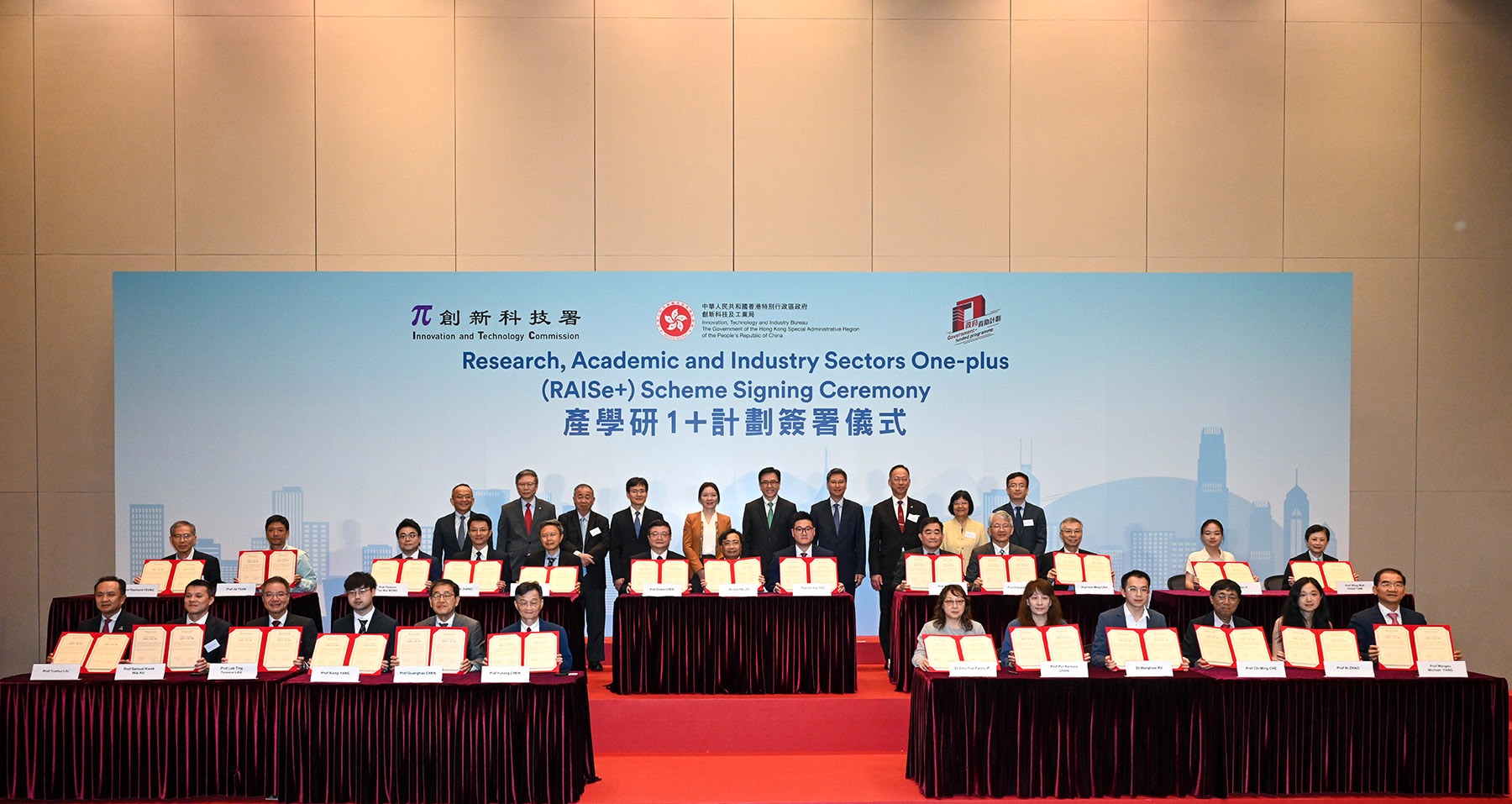
The Hong Kong Special Administrative Region government signed memorandums of understanding on Tuesday with 24 teams from local universities to subsidize their innovation projects in areas such as Alzheimer’s disease and soybean cultivation.
The 24 projects are the first batch of beneficiaries under the city’s Research, Academic and Industry Sectors One-plus Scheme — a program that aims to boost the transformation and commercialization of research outcomes incubated by local institutions.
READ MORE: CE expects half of HK firms to use AI by year-end
Addressing the signing event, Sun Dong, secretary for innovation, technology and industry, said that the subsidy program has received 94 applications since its launch in October, with 24 projects eventually recommended by the program’s steering committee.
A total HK$1 billion ($128 million) of funding will go to the 24 projects in areas that include medical sciences, new materials, artificial intelligence, robotics, engineering, traditional Chinese medicine, agriculture, and marine biotechnology.
Sun said that the government, in addition to strengthening technology transformation, has made a major effort to enhance the downstream industries.
“We have successfully negotiated with more than 100 tech enterprises of strategic importance to set up operations or expand their presence in Hong Kong in just two years,” he said, adding that it echoes the city’s goal of enhancing the innovation and technology ecosystem with a virtuous cycle of interactions between difference sectors.
Sun also said the collaboration marks a significant step forward in Hong Kong’s technology and innovation development and will contribute to propelling the development of Hong Kong’s new quality productive forces and enhancing global competitiveness in the long term.
Duncan Chiu, chairman of the program’s steering committee, said the program was introduced at the perfect time, as Hong Kong was eagerly in need of critical grants to promote the successful commercialization of research-and-development outcomes and unleash the maximum potential of the I&T community.
Among the funded projects is one led by Fanny Ip Chui-fun, chief scientific officer of the Hong Kong Center for Neurodegenerative Diseases. Together with researchers from the Hong Kong University of Science and Technology, Ip aims to develop a pioneering therapeutic approach in gene editing for the treatment of familial Alzheimer’s disease (FAD).
FAD is a subset of Alzheimer’s disease, affecting 2 million to 3 million patients worldwide, and is more aggressive with a very early onset. Currently, no effective treatment strategy has been discovered for FAD.
ALSO READ: Chan: Innovation, financial industries give GBA edge over rivals
Ip said the program will also help her project match investment from industries and other universities, and collaborate closely with various industry partners, including key pharmaceutical and hospital groups.
Another project is being led by Chen Zhiwei, a professor at the University of Hong Kong, who is developing a novel drug that targets distinct immune-modulatory functions to treat liver cancer — one of the most common cancers worldwide.
With the assistance of the funding and other investors, Chen’s team will be able to complete the remaining trials and secure new drug application and market authorization approvals, paving way for the antibody drug’s clinical use.



